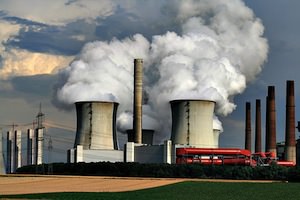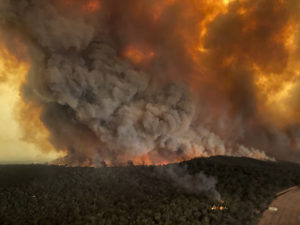1,200 New Coal Power Plants Planned Worldwide
Despite warnings from scientists and environmental groups that global warming will be unstoppable if carbon emissions do not peak within a few years, 59 countries, led by China and India, are planning to expand their coal-powered energy sources.
Despite warnings from scientists and environmental groups that global warming will be unstoppable if carbon emissions do not peak within a few years, 59 countries, led by China and India, are planning to expand their coal-powered energy sources.
A report by the World Resources Institute found that the global coal trade rebounded after a slight dip in 2008, rising by 13 percent in 2010. The trade has shifted substantially away from Europe and the U.S. toward China, which became a net importer of coal in 2009, and Japan, South Korea and Taiwan.
Germany, the U.K. and France remain in the top 10 of importers, with coal use rising 4 percent in Europe in 2011 as prices fell and plants slated to close raced to use their allotted running hours. Indonesia and Australia are the largest coal exporters. Australia plans to triple its capacity to mine, store and ship coal to almost 1 billion metric tons a year.
— Posted by Alexander Reed Kelly.
Your support matters…The Guardian:
The capacity of the new plants add up to 1,400GW to global greenhouse gas emissions, the equivalent of adding another China – the world’s biggest emitter. India is planning 455 new plants compared to 363 in China, which is seeing a slowdown in its coal investments after a vast building programme in the past decade.
“This is definitely not in line with a safe climate scenario – it would put us on a really dangerous trajectory,” said the WRI’s Ailun Yang, who compiled the report, considered to be the most comprehensive in the public domain. But she said new emissions limits proposed in the US and a voluntary cap on coal use in China could begin to turn the tide. “These policies would give really strong signals about the risks to the future financial performance of coal of climate policies.”
… [N]ew plants have largely been financed by both commercial banks and development banks. JP Morgan Chase has provided more than $16.5bn (£10.3bn) for new coal plants over the past six years, followed by Citi ($13.8bn). Barclays ($11.5bn) comes in as the fifth biggest coal backer and the Royal Bank of Scotland ($10.9bn) as the seventh. The Japan Bank for International Co-operation was the biggest development bank ($8.1bn), with the World Bank ($5.3bn) second.
Independent journalism is under threat and overshadowed by heavily funded mainstream media.
You can help level the playing field. Become a member.
Your tax-deductible contribution keeps us digging beneath the headlines to give you thought-provoking, investigative reporting and analysis that unearths what's really happening- without compromise.
Give today to support our courageous, independent journalists.






You need to be a supporter to comment.
There are currently no responses to this article.
Be the first to respond.